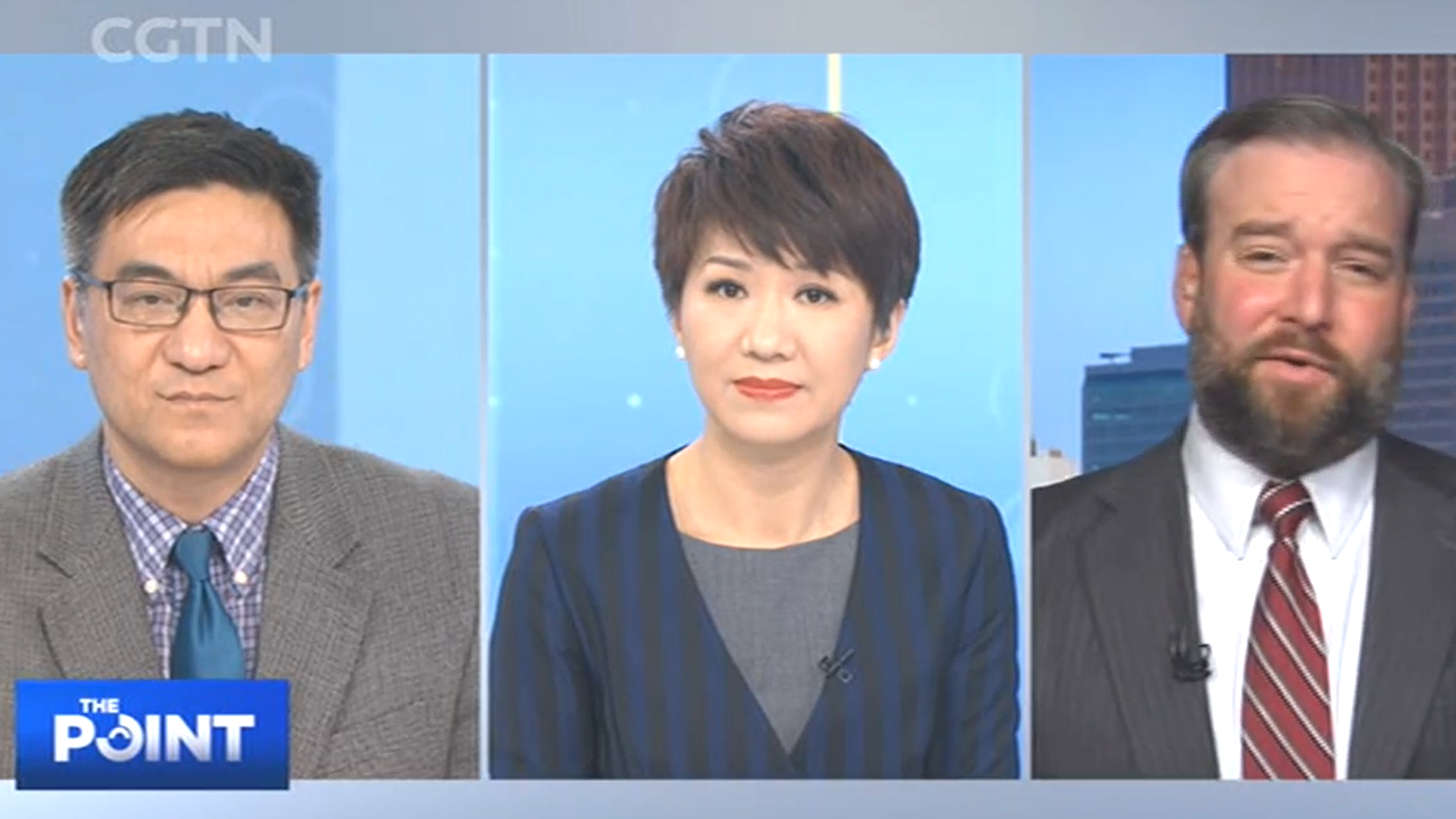01:36

In the shadow of trade tensions, the debate around the role of China's business credibility rumbles on. In two recent op-ed articles, in The Washington Post and Forbes, two journalists expressed contrary opinions about China's economic rise.
"Too many people are trying to portray this as black versus white or good versus evil or China versus the United States. The reality is that it is way more complicated than that. These two articles start from very ideological extreme places in their titles but move much more toward the center,'' said Branden Blackburn-Dwyer, founder of Grasshopper Strategies.
The Washington Post article, titled "Pretending all Chinese companies are evil schemers will only hurt the U.S. economy," argued that protectionism displayed by Trump will only damage the U.S. economy. However, the article published by Forbes declared that China has a grand plan to take over the world.
''I think China has a dream to be a world superpower, does that mean domination over others or does that mean prominent in the world economy? I'm going to go with at least being prominent and that's not a bad thing. All countries that are growing should desire to have influence, position and prestige in the world," Branden Blackburn-Dwyer.
Politicians and journalists in the West have long argued that China poses a threat to the world because of the links between Chinese companies and the Communist Party of China.
01:00

''Business is business. Chinese companies are no different from other companies across the world. We have to keep in mind that Chinese companies also include many competitive private companies who have nothing to do with the Chinese government,'' said Professor John Gong from the University of International Business and Economics.
Concerning state-owned companies, Gong argued that these are no different from similar organizations in Europe. ''State-owned enterprises are not unique to China. Europe, for example, has tons of SOEs. They are also for profit. In China, they are controlled by the State Asset Supervisory and Administration Commission, which exercises the stakeholders' rights on behalf of the state. The mission is very clear, they are for-profit organizations.''
Blackburn-Dwyer argued that many Chinese companies are coming under the same scrutiny faced by others U.S. companies and that China is not necessarily being singled out. This point was highlighted by the recent case of Tik Tok, which is being investigated by U.S. lawmakers along with Facebook, Apple and other social media giants.
"The Point with Liu Xin" is one of the main current affairs programs on CGTN. The 30-minute program comments on global news through Liu Xin's unique perspective. With two decades of experience as a news anchor and overseas correspondent, "The Point with Liu Xin" connects global audiences through social media, enhancing their participation and offering a comprehensive perspective on world events.
Schedule: Monday-Friday
Time (GMT): 1330, 2130, 0230
(If you want to contribute and have specific expertise, please contact us at opinions@cgtn.com.)